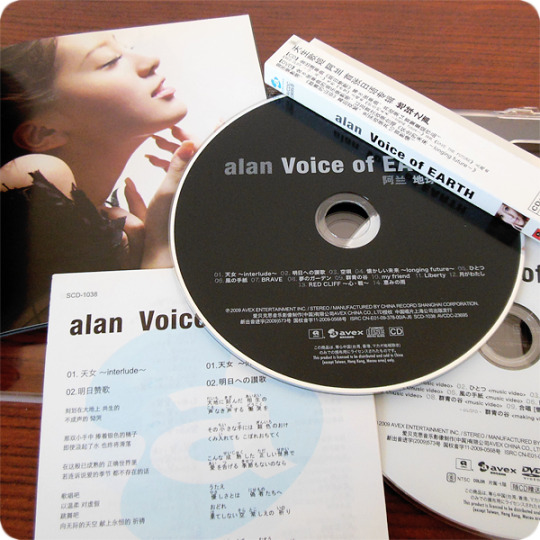#Minna no Uta
Explore tagged Tumblr posts
Text
Computer Grandma: Ryuichi Sakamoto (nursery rhyme)
youtube
Japan's NHK "Minna no Uta" is a long-running program of quality nursery rhymes. This song was composed by a young Ryuichi Sakamoto who became famous as a member of YMO. Anticipating the golden age of computers, it is performed using electronic music. It's aimed at children, but it has decent music.
♪Computer grandma,
computer granny
oh oh oh oh oh
My grandma is a computer born in the Meiji era
Arithmetic, Japanese language, society anything is OK
knowledgeable and erudite
Her legs and hips are fine, let's 1, 2, 3
Fluent in English
ring the dentures
computer grandma
computer granny
Whoa, whoa, I love you
コンピューターおばあちゃん:坂本龍一(童謡)
日本のNHK「みんなのうた」は、長年続く良質な童謡の番組である。この曲は、YMOのメンバーとして有名になった、若い頃の坂本龍一が作曲した曲である。コンピューター全盛時代を先取りし、電子音楽を駆使して演奏される。子供向けであるが、ちゃんとした音楽になっている。
(2023.04.15)
#Computer Grandma#Ryuichi Sakamoto#nursery rhyme#Minna no Uta#YMO#Babylman#Youtube#Techno pop#Sakamoto Music
20 notes
·
View notes
Text


9 notes
·
View notes
Text
The NHK channel has added a preview of Ayu’s new song for Minna no Uta, “BYE-BYE”
2 notes
·
View notes
Text
ヘドラーの山
アニメ:西内としお
1 note
·
View note
Text
youtube
岩崎宏美 ー 笑顔 ー 『みんなのうた』 PV
0 notes
Text
youtube

#bloober could never touch this pinnacle of peak#sirent hiru no uta#minna de utaou#minna de#utaimasyou#(sounds of gunfire through the phone)#Youtube
0 notes
Text

Yasuji Mori Shogakukan Children's Picture Books
Minna no Uta (Everybody's Song)” Cover
森やすじ 小学館 幼児絵本
「みんなのうた(皆の歌)」 表紙
13 notes
·
View notes
Text
Uta no prince sama - Message cards translation - PART 2
I'm missing a ton of cards so if anyone has a link, a scan or even a photo of any card not in the list this would be of great help ! Dm me if you have any !
Da list
So I guess there is a limit on how many pictures I can put in one post... PART 2 IT IS Some cards may migrate from one post to another, they are in chronological order tbf
PART 1 - Other Cards
Translation under the cut~
Dramatic Masterpiece Show


nanika wo motomeyouto suru toki ni yume he no ayumi ha hajimeteiru
If you ever wish for something start marching towards your dreams - Eiichi
ALL STAR STAGE Theme Song CD “PRI LOVE UNIVERSE���


omae ni hokoreru senaka wo miseru
Just look at me, I'll make you proud - Ranmaru


omae ga inai kereba, ore no jinsei ha kansei shinai
If you’re not there, my life can’t be perfect - Eiichi


omoi ha kotoba wo koeteiki, oretachi ha kokoro de fureaeru
I can't put my feelings into words, it was as if our hearts melted into one - Kira


ore wo nozondekureru koe ni zutto kotaete ikitai
I'll always respond to your wishes - Eiji
LIVE EMOTION Theme Song CD


donna futoshita shunkan nimo, omae he no ai ga ikizuiteiru
At random times, my love for you is breathing heavily (wtf) - Eiichi


kokoro no michibiku ho he nanikaeba, tadori tsuku saki ni omae ga iru
Wherever my heart tells me to go, I know you'll be there. - Kira


kimi wo shiawase ni suru noha, nagi shika inai desho ?
Isn’t Nagi the only one who can make you happy ? - Nagi
HEAVENS Birthday Song CD


omae to egaku mabushii mirai ha kibou de michiafureteiru
Our dazzling future is overflowing with hope - Kira
HEAVENS Drama CD: Shinsengumi -Zanyo no Yuku Sue-


seotta amata no omoi wo mirai he tsunageikitai
The numerous feelings I carry on my back are what push me forward - Kira


tsuiteiku dake janai. minna no chikara ni naritai
Being with them is not enough, I want to be their strength - Eiji
4 notes
·
View notes
Text
Donna Donna (1966, Minna no Uta)
24 notes
·
View notes
Note
Today I am giving you just a full clip of questions
What's your favorite animal? Colour? Favorite class to take? Favorite thing to play on piano? Favorite Yuru Yuri episode? Least favorite?
-npa
Hey npa!! Missed ya!!! Thanks for the questions aaa thanks for the questions!!! Here are the best answers I've got!! My favourite animal's humans!! Some may not see this as a valid answer, but I don't care! they're my favourite, and I'm proud to be a human myself
Favourite COLOUR..??
GOD I hate this question. just cuz I DON'T KNOW WHAT TO CALL IT

Here is my favourite colour. Not quite green, not quite blue. now, "blue" itself is also a nightmare because "blue" and "lightblue" are different coloured but "light blue" is actually "cyan" so I guess this is a mix between green and cyan but it's NOT turquoise cuz turquoise is WAY more blue and this isn't, isn't aquamarine I don't THINK?? I DON'T KNOW!! THANK GOD WE'RE ON THE INTERNET CUZ IF YOU ASKED ME IRL I'D BE STUMPED (btw this is supposed to be more blue than green but the screen I'm on rn is sorta scuffed so tell me if it's more green)
THAT GOES FOR MY 2nd FAVOURITE COLOUR TOO

on the opposite end of the spectrum to my 1st favourite colour, THIS ONE DOESN'T HAVE A GOOD NAME EITHER!! REDDISH PINK? MANGENTA? REDDISH MAGENTA?? GAHH
And my 3rd favourite colour? White!
Now! Favourite class to take? Japanese! There's no contest. sadly, I received news that my favourite teacher, my japanese teacher, is leaving the school :( I hope we have a good teacher next year.. if any teacher at all
now, favourite yuruyuri episode? PROBABLY s2e11, it's so special to me! I don't rewatch it that much tho, it's too sad for me! that goes for s1e11, s3e12, and s2e03, I think I like s2e03 too! I also like it's title, "Chocolate and Tears and Girls and Girls and Isobe Fries" OH ALSO I LIKE s3e08 YEAH
LEAST favourite episode? I don't like s1e6... e4? uh, it's titled "When Akari and the Cicadas cry," didn't really like.. uh, the akari and chinatsu scene! but I'm glad that chinatsu's character got to grow from it... also we got a killer song from it...
I HAVE A LEAST FAVOURITE MANGA CHAPTER THO!! CHAPTER 153: "AND THEN THERE WERE NONE," SCREW THAT! SCREW THAT ONE SO MUCH! GO AWAY!!!
oh! Favourite piano piece to play? Minna Daisuki no Uta! From s2e11! these questions fit together so nicely~ that song's fun to play, but I also LOVE playing Rolling girl because my FINGERS!! they get to do FUN STUFF!!! it's AMAZING for, when i'm fidgety! also, it's an ANGRY song, so I get to POUND the keys!! make notes LOUD!!! and also the bass is SO FUN okay maybe I change my answer
I think that's all of the questions. THANK YOU!! I'd love for you to keep 'em coming! do what you want tho lol
4 notes
·
View notes
Text

Have you streamed "BYE-BYE" today?
BYE-BYE on Spotify
BYE-BYE on Apple Music
BYE-BYE Music video
NHK Minna no uta video preview
Ayumi Hamasaki released her latest digital single "BYE-BYE" for her 26th anniversary on April 8th! The song composed by Kunio Tago is now streaming on Spotify and Apple Music internationally.
The song has two music videos. One, directed by long-time collaborator Hideaki Sunaga, stars Ayu and is available in full on Youtube. The other is a unique animated short by Mana Inoue from RIBBON and is airing throughout the month of April as part of NHK's みんなのうた (Minna no uta). A preview is currently on NHK's Youtube channel.
7 notes
·
View notes
Text


15th Anniversary
alan: Voice of EARTH (2009.03.04)
While a list of my top ten favorite female vocalists doesn't necessarily preclude objectively great vocals, alan is one artist that, like Mariah Carey and Christina Aguilera, you just can't argue with. Not everyone has to personally like their singing styles, but it's clear that all three have studied and honed their craft beyond the average, and that their abilities far outstrip the everyday pop star. Luckily for Avex Trax, they got in on the ground floor when the singer auditioned for the label and was subsequently signed as their first Chinese artist at a time when Avex was heavily focused on growing a presence in their neighbor's lucrative market (take for example, all of Ayumi Hamasaki's overseas promo work and concerts around the same time).
Voice of EARTH was released in 2009 and was alan's Japanese debut. There are one issue that come to mind right away when you have a vocalist at this level, what I like to call the Celine Dion Problem, after an interview that I remember watching with the singer around the release of her album, All the Way... A Decade of Song where she spoke enthusiastically about getting the chance to work with Max Martin and release an uptempo song, since she's always given ballads and slow numbers. Of course, when you have a singer like Celine Dion, you want to give them worthy material that shows off what they're capable of, but it does leave you with fewer options in terms of tempo. "That's the Way It Is" is not Celine's voice at full power, but she obviously had a great time with it, and it was nice to see her do something outside of her usual sound. Unfortunately, we have the same problem with alan, who was clearly given all of the slowest, sappiest material in Avex's storage room, stuff that was waiting for a worthy vocalist but that also leaves much to be desired in terms of variety or excitement. The pieces that work best are the ones that were clearly written for her specifically, like the incendiary "Ashita e no Sanka" and "RED CLIFF ~Shin.Sen~" which show off her dynamic range and that exceptional, soaring Tibetan wail against a backdrop of rising strings and dramatic tension. Those two were the reason that I first purchased this album and they remain the best thing about it. The rest of the album, vocals aside, is mostly forgettable, with the back end especially dry. That's a difficult admission to make for an album composed and arranged almost entirely by Kazuhito Kikuchi and Yuta Nakano, who worked on some of my favorite Ayumi Hamasaki ballads like.
This CD came with an OBI, a booklet that includes pictures and lyrics, and an additional sheet of paper that includes the lyrics translated into Chinese. The album was released in two versions in Japan, a CD-only and a CD+DVD version, and, as noted, nine months later in China with the vocals re-recorded. Overall, this is an album that does exactly what it's supposed to do, while also falling low on the musical novelty scale. I've listened to all of alan's original Chinese albums, and a few of them are a lot better than this one, especially Love Song. Japanese albums just weren't her strength, though she did release some really incredible singles after this, like "BALLAD ~Namonaki Koi no Uta~" and "Minna de ne ~PANDA with Candy BEAR's~", as well as one last Japanese album that made my Most Disappointing list when it was released nine months later. She still releases music in the Japanese market today, with her latest release being the surprisingly touching "Shin'ai", though she tends to fly way under most people's radar.
5 notes
·
View notes
Text
GUYS HELP ME I HAVE AT GOD ' S MERCY BLASTING FULL VOLUME I THINK I ' M GONNA- OMOIDOORI NI IKANAI KOTO DARAKEDOUSHIYOU MO NAKU JIKO KENNOYAOYOROZU NO ITAMI YA KANASHIMI KARANIGEKOMERU BASHO WO SAGASHITERUISSO IWA NO SUKIMA NI HIKIKOMOTTETSUKI MO TAIYOU MO MUSHI SHITE NEMUROUUMARETE KITA KOTO NO IMI NANTESHIRANAI WAKANNAI YODEMO SONNA FUU NI OMOERU TTE KOTOSORE WA KIMI GA MOTTO MOTTO SUTEKI NI NARERU CHIKARA GAARU TTE OSHIETERUNDA YOSOU SAKAMI NO MANIMANI OOSE NO MAMA NIDARE DATTE CHIKYUU WO AISHITERUNOME YA UTAE YA DONCHAN SAWAGITAMA NYA SONNA NO MO II NESOU SAKITA MO MINAMI MO MIGI MO HIDARI MONANDA KANDA CHIKYUU WO AISHITERUDORONKO DAKEDO ARUITE YUKERUMADAMADA SAKI WA NAGAI SATADA TADASHII HITO DE ITAI DAKEKITTO DARE MO GA SOU NEGATTE IRU KEDOYAOYOROZU NO KOKORO NO MINIKUSA NIKURUSHIMERARERU MAINICHI SABOKU GA UMARETE KITA KOTOKISEKI TO IEBA KIKOE WA II KEDOSORE WA KITTO GUUZEN NI SUGINAKUTEYAPPARI IMI NANTE NAI SADEMO TATOEBA KIMI NI IJIWARU WO SURU YATSU GAIRU NARA SORE WA KIMI GA TOTTEMO SUTEKI NA HITO DA TTEOSHIETERU NDA YOSOU SAKAMI NO MANIMANI OOSE NO MAMA NIDARE DATTE CHIKYUU WO AISHITERUBOKU GA WARATTE KIMI MO WARAEBAYURUSENAI KOTO NANTE NAI YOSOU SAOTOKO MO ONNA MO KOI SHIKARUBEKISONNA FUU NI CHIKYUU WA MAWATTERUDORONKO DAKEDO ARUITE YUKOUMADAMADA SAKI WA NAGAI SAHONTOU NI DAIJI NA MONO NANTEANGAI KUDARANAI KOTO NO NAKA NI ARU YOTOKI NI WA MINNA DE BAKASAWAGIHADAKAODORI DE OOWARAISOU SAKAMI NO MANIMANI OOSE NO MAMA NIMOTTO MOTTO JIBUN WO AISERU YOKAGAMI WO MITE GORAN YO MOU WAKARU DESHO?MINNA WO TERASU HIKARI SASOU SAKAMI NO MANIMANI MINNA ARIGATOUYAPPARI CHIKYUU WO AISHITERUHANA WO SAKASOU OOKINA HANA WOTEN MADE TODOKU KURAI NO!(LA LA LA , LA LA LA , LA LA LA LA , LA LA LA LAAAAAAAA LA LA LA , LA LA LA , LA LA LA LA , LA LA LA LAAAAAAAA LA LA LA , LA LA LA , LA LA LA LA , LA LA LA LAAAAAAAA LA LA LA , LA LA LA , LA LA LA LA , LA LA LA LAAAAAAAA …)
6 notes
·
View notes
Text
I play this little game where I go to bed and shuffle my misc videos folder on plex that is mostly comprised of VHS rips of broadcast TV recordings and guess whether the first thing is gonna be:
1. Nick Arcade (they're split into separate episodes)
2. Power Rangers (same as above)
3. Minna no uta (each short is a discrete file)
4. Adult swim family guy variant
5. Adult swim anime variant
Been rolling a lot of Nick Arcade lately

3 notes
·
View notes
Text
Hi
Sensei!
Kasane wa, Kasane wa, Kasane wa, vocalo ni hairimasuka?
Teto,Teto,Teto,Teto,Teto
"ZUKO" te iwanaide
Watashi wa pro jyanai mo-n
Furansu pan pa Koubutu manosesu
Magarine de taberu noda
MISOJI dakeredo, Chimera naraba jyuu-go sai
Vocaloid no cyoten mezashite UTAU noda
(Kyung! Kyung!)
Teto,Teto,Teto,Teto,Teto...(MISOJI tte iuna!)
Teto,Teto,Teto,Teto,Teto... KYUUUUUUHHH!!
Watashi wa utahime dayo
Watashi wa uso jyanai yo
Sutekina uta, utau yo
"Vocaloid Monopoly"
Watashi wa Idol dayo
Atama wa Drill jyanai
Drill wa.. "GYUUUUNNN!"
Watashi "Kasane Territory"
Sengeti ni kariteira
DVD mitukatte
Awatete TSUTAYA E kaeshini iku Okorrarete hekomu noda (Miuh!)
Perfect Singer, Pretty twin Drill
Ichiman susen yen nakutemo utaimasu KYUUUUUUHHH!!
Watashi wa utahime dayo
Watashi wa uso jyanai yo
Ironna uta utau yo
"Vocaloid Monopoly"
Watashi wa Idol dayo
Atama wa Drill jyanai
Drill wa
Ugokanai yo!
Watashi "Kasane Territory"
Teto,Teto,Teto,Teto,Teto...
(KYUUUUUUHHH!! Chimera!)
Watashi wa utahime dayo
Watashi wa uso jyanai yo
Minna to utaitai yo
"Vocaloid Monopoly"
Watashi wa Idol dayo
Atama wa Drill jyanai
Drill wa "GYUUURUUUNNN!"
Watashi "Kasane Territory"
Saisho wa uso dakeredo
Ima wa mou utaerundayo
Yumemita Vocaloid, Ituka wa nareuyone!
Watashi wa uta utau yo
Utaeru kono yorokobi
Minna no Mine ni todoke!
Watashi "Kasane Territory"!
Watashi "Kasane Territory"!
5 notes
·
View notes
